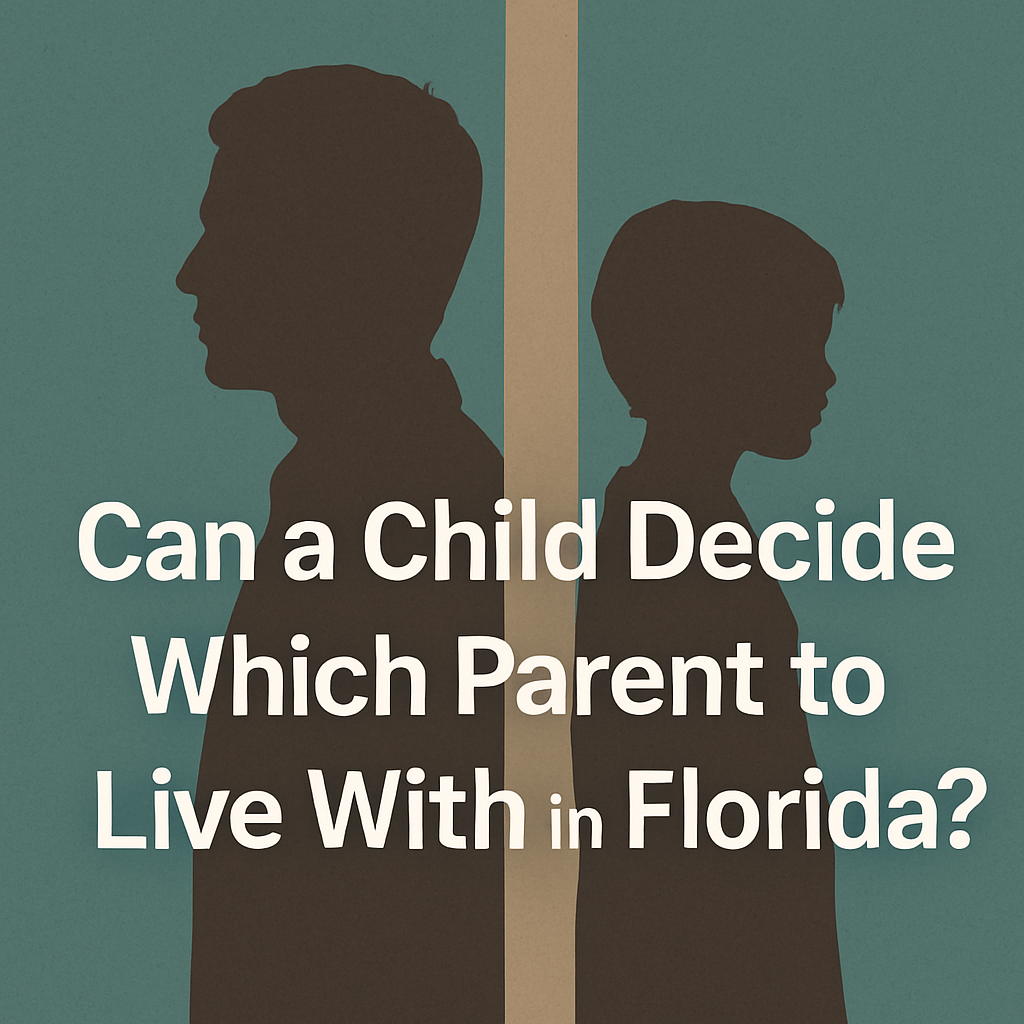
When parents separate, one of the most emotional questions that arises is where the child will live. Many families ask about the role of the child’s opinion in this decision. While a child’s voice matters, the law is clear: when it comes to child custody preference in Florida, it’s only one of several factors a judge will consider. Age, maturity, and the broader best interests of the child always guide the final decision.
Judges evaluating child custody preference in Florida will assess whether the child’s wishes are based on sound reasoning or external influence. For example, a mature teenager who expresses a well-thought-out preference may carry more weight than a younger child who chooses a parent based on relaxed rules or leniency. Ultimately, the court’s focus remains on creating a stable, healthy environment — not simply honoring preference alone.
👨⚖️ The Role of a Child’s Preference
Florida courts are required to act in the best interest of the child. One of the factors considered is “the reasonable preference of the child,” but this is only one part of the overall analysis.
Courts will weigh:
- The child’s age and maturity
- The reasons behind the preference
- Whether the child was influenced or coached
- How each parent supports the child’s needs
🚫 It’s Not the Deciding Factor
Even if a child expresses a clear preference, the court must still evaluate all statutory factors under Florida Statutes § 61.13.
🧭 What Parents Should Know
Encouraging a child to express their needs is healthy—but pressuring them to “choose sides” can backfire. The court will take that behavior seriously.
If your child has strong feelings about where they want to live, it’s best to speak with an attorney who can help present that concern in the appropriate legal way.


